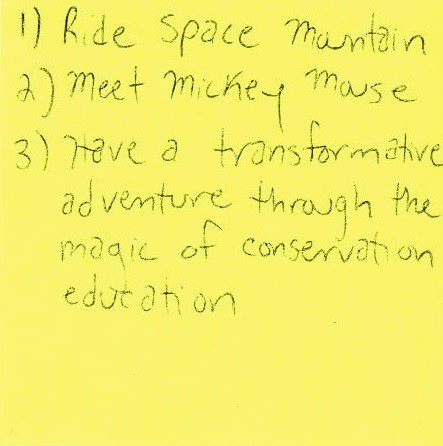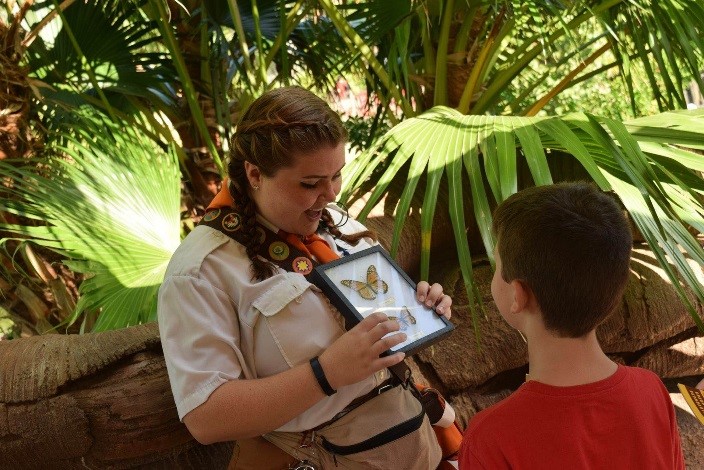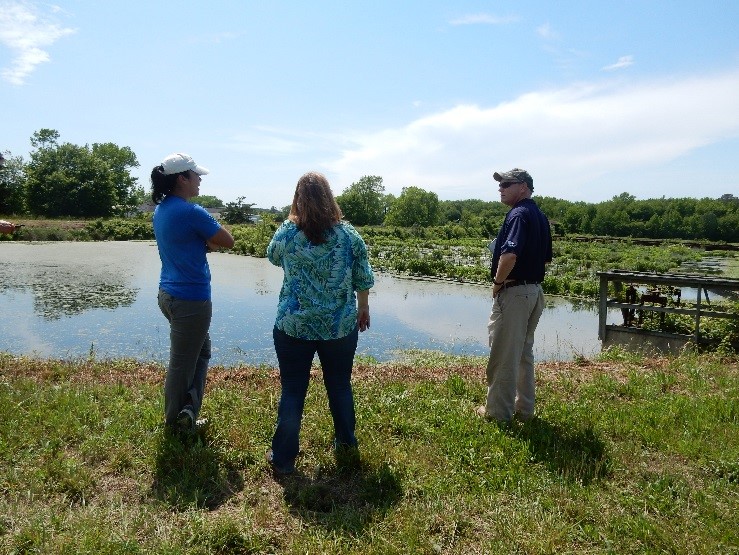11 July 2016
The magic of environmentalism
Posted by Shane Hanlon

This may not be the checklist most families assemble when planning a Disney vacation, but it’s exactly the type of experience my team attempted to deliver.
By Haley Gannon
As a Conservation Education Presenter at Disney’s Animal Kingdom, I spent every day connecting families to nature through the Wilderness Explorers program. My team spoke to 1.5 million people in our time there, and ensured that each one of them walked away with a deeper understanding of their role in the natural world. That experience taught me how easy it can be to disconnect ourselves from the world around us.
Most of the people I spoke to in my time as an Education Presenter had a limited grasp of how their everyday actions could impact entire ecosystems, and even less on what they could do to help. My team provided families with a number of different resources to help them in this regard, but it made me wonder – how would things be different if the public was more aware of the scientific information available to them? If these families based their decision making in a solid foundation of environmental knowledge and a connection to nature, what would change?

Me teaching a young Wilderness Explorer about the importance of pollinators in an ecosystem
The reason I chose to go into geology is that I wanted to use science to make the world a better place. I feel like that sentiment rings true for many professions. In the sciences in particular, there sometimes seems to be a disconnect between academics and the communities they’d like to help with their research. Adding to scientific knowledge is truly a noble pursuit, and it’s something I have a lot of respect for. However, publishing in journals doesn’t necessarily mean that the results of that research are going to have the desired impact.

TEX scientist and city leaders discussing pond remediation in Berlin, MD
There’s a gap to be bridged between scientific solutions and positive change in communities. AGU’s Thriving Earth Exchange program works to do just that. By connecting scientists and communities, generating solutions to challenges, and sharing the results, TEX projects produce concrete impacts that make a difference. It is our hope that TEX projects, like the Wilderness Explorers program, will make science relevant in peoples’ everyday lives so that we can build a more environmentally conscious world.
-Haley Gannon is an Environmental Geology graduate from William & Mary and the Spring 2016 AGU TEX Intern.


 The Plainspoken Scientist is the science communication blog of AGU’s Sharing Science program. With this blog, we wish to showcase creative and effective science communication via multiple mediums and modes.
The Plainspoken Scientist is the science communication blog of AGU’s Sharing Science program. With this blog, we wish to showcase creative and effective science communication via multiple mediums and modes.